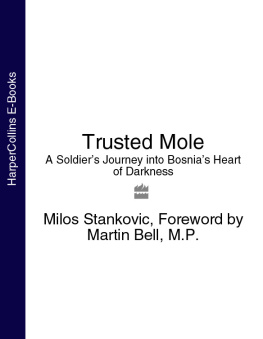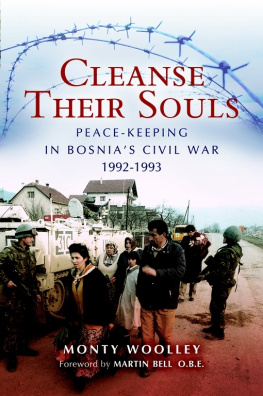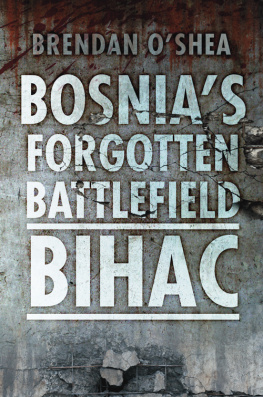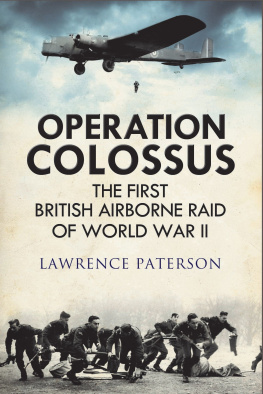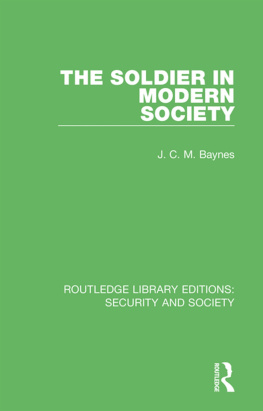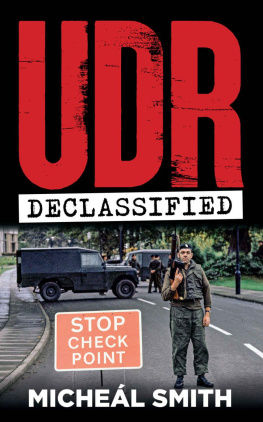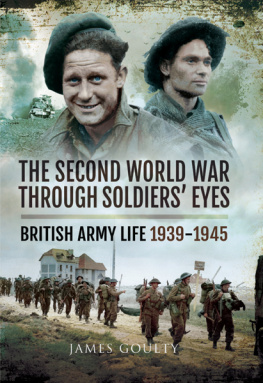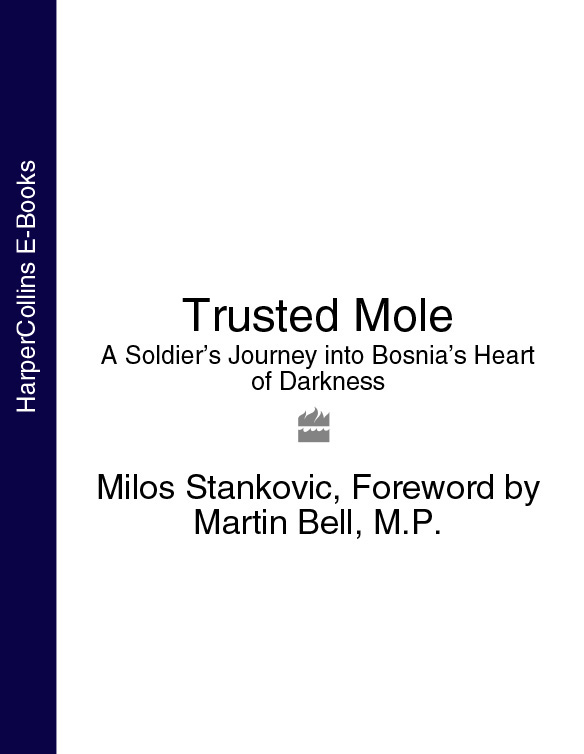Further reviews for Trusted Mole:
By far the best book to have come out of the Balkan wars, not because it explains the conflict simply, but because Stankovic demonstrates with wit and eloquence that simplicity was never part of the equation This is not, however, a bleak book. Far from it. There is humour, lots of it, often (inevitably) black, but also reflecting the accidental idiocies and genuinely comic scenes that occurred in the midst of organised chaos.
PETER MILLAR, Sunday Times
Stankovics book is far more than the outcry of an innocent man foully accused. He has a wonderful eye for detail and a natural storytellers gift, and passion, to get across the bizarre and terrible cruelty of what the people of Bosnia went through. At times, I laughed out loud; at times, horrible moments of my spells there came swimming back, brilliantly evoked in Stankovics fresh prose Trusted Mole is rich in comic scenes But the comedy switchbacks with the tragedy this man was a hero, caught in the middle and discarded by a military bureaucracy that should be shot at dawn for its betrayal.
JOHN SWEENEY, Observer
Now exculpated from all charges, Stankovic has written a remarkably frank account of his time in Bosnia What Trusted Mole makes sickeningly clear is not just the absurdity of sending in peacekeepers with no peace to keep (and neither the weaponry nor the political backing to impose it), but also the corrupting effects of war and humanitarian aid on almost everybody involved.
MARK ALMOND, Literary Review
This is a powerful book the inside story, not only of the UNs war in Bosnia but also, of what happens to someone who spends too long in a place populated by the dead and those whose hope has died.
CHARLOTTE EAGER, Sunday Telegraph
Well-written, gripping and highly informative It is evident that he was disgracefully let down by a system which he trusted and he is to be congratulated for writing a fascinating account of an experience that would leave most people shattered.
ADRIAN WEALE, Daily Mail
Fascinating and truly exciting As a window into that hidden period, his account is a revelation, Uttered with insights into the ordinary human chaos which lay behind the apparently calm and collected statements of the politicians and the military top brass.
JAMES RUDDY, Eastern Daily Press
This book is dedicated to the memory of two people. First, it is for my father, who led a full, varied and productive life. Second, it is for Dobrila Kalaba and countless others like her who were denied the realisation of those basic aspirations by the horror that was Bosnia.
Contents
This book had its genesis as long ago as 1993, long before most of the events in it had happened. The idea was sown by Keith in a restaurant in Split. Since then it has germinated and, weed-like, grown in all sorts of ill-defined directions. Initially it was nothing but a hobby and a dalliance, during which I pottered with early drafts of amusing anecdotes only. I found it almost impossible to address the more tragic and serious aspects of my time in the Balkans. All that changed on 16 October 1997 when I was arrested by the Ministry of Defence Police. That alone forced open the lid on my Balkan Pandoras box and compelled me to re-examine in minute detail the events of those years. This book is a result of that examination.
Trusted Mole was written exclusively while I was on police bail. Fortunately, the MoD Police saw fit to extend that bail three times and this book was written on the hoof in London, at Chanters House in Devon, in the bush in Zimbabwe and on yachts Te Aroa and Rockin Billy while crossing the Atlantic between Antigua and Falmouth.
This is a personal account of what happened to me from January 1992 to the present day. The opinions expressed in it are therefore mine and mine alone. They are not in any way representative of the opinions or policy of the British government (past and present), its Ministry of Defence or its Foreign and Commonwealth Office.
I learnt one very valuable lesson in the Balkans. There is no Truth. There is only Perception. This book does not claim to be an accurate portrayal of what was true and what was not true in the Balkans no book can be, despite the best efforts of the author to convince the reader that he or she is the sole guardian of Truth. Trusted Mole is therefore a true story based on my perceptions. Throughout, I have been less interested in the nitty gritty and frequently boring details of the war and the negotiations in it. Who said what to whom, when, where and how is, to say the least, dull. It is guaranteed to send the reader to sleep.
Of much more interest is the nature of human relationships. In that sense, there is nothing that happens in war, other than legitimised killing, which does not happen to all people in their everyday lives. Its all there: courage and cowardice (moral and physical), charity and selfishness, humility and pride, sloth and industry, petty jealousies, greed, envy, self-seeking and aggrandisement, hate and love. It is my perception that these traits, good and bad, lurk within us all; some to a lesser, others to a greater extent. Some are propelled to visibility by the circumstances in which we find ourselves, while others remain hidden. It is also my perception that in peacetime we have more control over which of these aspects of character we, chameleon-like, choose to present to others. Its a subconscious bluff. That luxury of choice and control does not exist in war. The extreme nature of violent human conflict heightens our level of awareness and diminishes the control we have over our emotions and the ability to conceal our true nature. For better or worse war opens a window on our souls. Trusted Mole is my perception through that window. I hope that in the pages of this book the reader will recognise something of himself or herself, and ask, How would I have been?
A word on accents and pronunciation. Most books dealing with the Yugoslav wars of the 1990s tend to include the appropriate accents above hard and soft consonants presumably in the hope that either the reader will pronounce the unpronounceable (to Westerners) correctly or that it will lend authority to the text. I have not bothered, for two very sound reasons. First, Yugoslavs themselves instinctively know what the accents are, whether the notations appear in the text or not. Furthermore, literary tradition and custom in former Yugoslavia allow both for the printing of accent markings or otherwise. Second, it has frequently been my experience that Westerners, however well-schooled, however well-meaning, of whatever age and seniority of position, have and still do display an uncanny aptitude for managing to pronounce whatever word or name every which way but correctly. I was often amazed by the resilience and self-control displayed by Bosnians when verbally assaulted by hopelessly mangled variants of their place and personal names. I would rather the reader glide through the text making up whatever version he or she is comfortable with, than try to apply phonetic rules to words and letters with which the eye is not comfortable. Go on. Make it up. Everyone else did!
Were this a book about the war in Croatia, life would be easy in the sense that one could refer to the two belligerents as Serbs and Croats without risking offence to either party. Sadly, that is not the case when dealing with Bosnia where nomenclature is a minefield of political correctness. One risks blundering in and detonating someones sensibilities. The confusion arises in that of the three parties to the conflict in Bosnia, two were commonly labelled with their ethno-tribal categories rather than their religious ones, namely Bosnian Serbs (Orthodox) and Bosnian Croats (Catholic). Unfortunately, the third party to the war in Bosnia has conventionally been labelled according to its religious orientation, namely Bosnian Muslims. To even out the balance the term Bosniac was fabricated to denote Muslims. It is an offensive label in that it would never have arisen had this war not happened. Bosnians are Bosnians irrespective of whether they are Orthodox Christians, Muslims or Catholic Christians. The label Bosniac was not widely used during my time in the Balkans. It seeped in during my last few months there. From the outset of war Bosnias Muslims were burdened with the label of Muslim not because they chose to be but because the internationals, particularly the media, created that convention. It was unfair. It would have been very easy in this book to have slipped into this familiar convention by referring to Serbs, Croats and Muslims. Mindful of the offence this might cause to the last-named group, I have deliberately referred to the first two groups by their ethno-tribal labels, while the other I have variously, and probably confusingly, tried to call Bosnians, Bosnian Muslims and Muslims. Bosniac is a term which I never used out there and do not use in this book. No offence is intended to any group. I hope all parties would agree that had I bowed to the ultimate absurdity of political correctness and called the groups Bosnian Orthodox people, Bosnian Catholic people and Bosnian Muslim people terms never used during the war the reality of events and their impact would have been ludicrously diluted.

